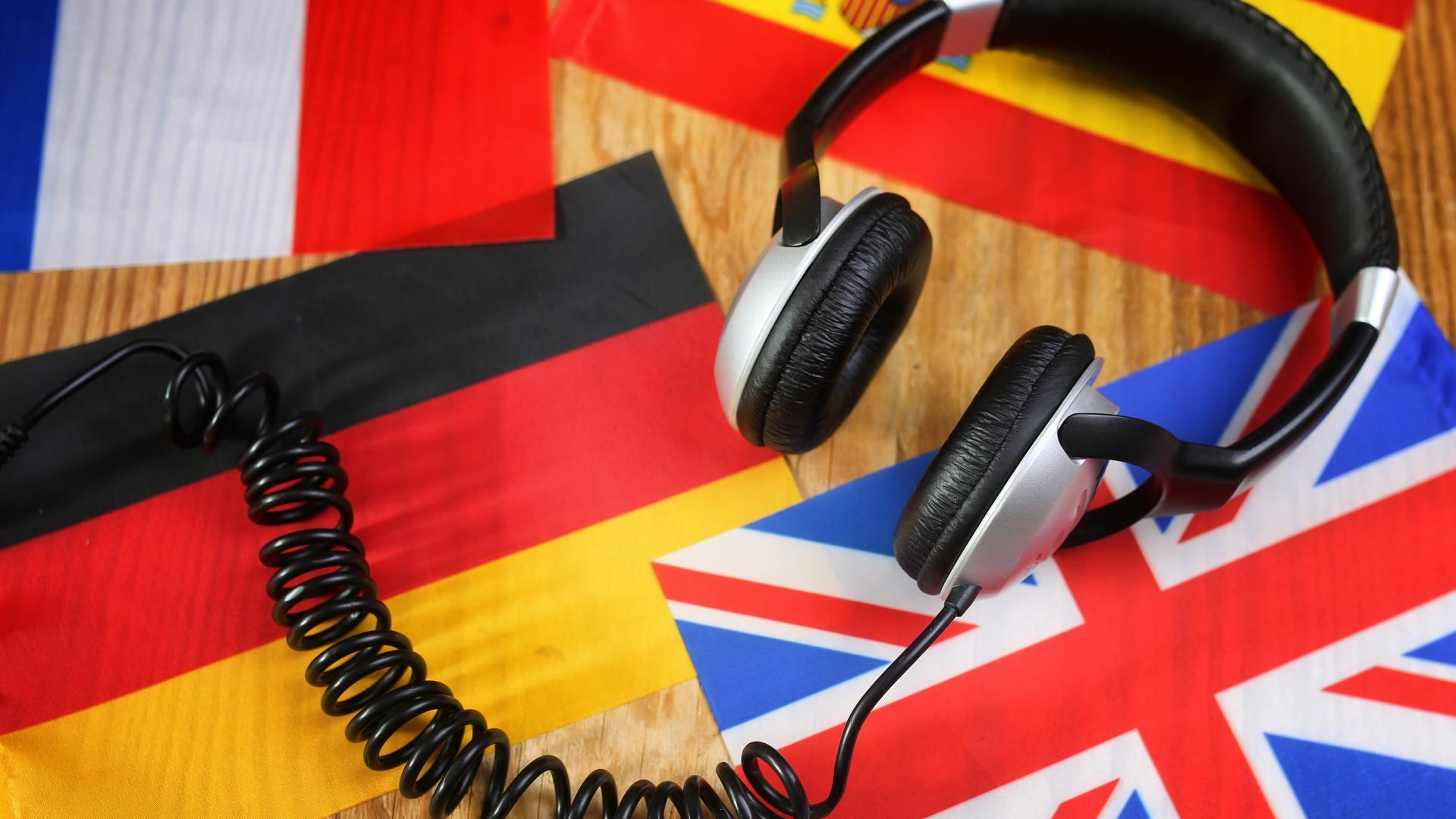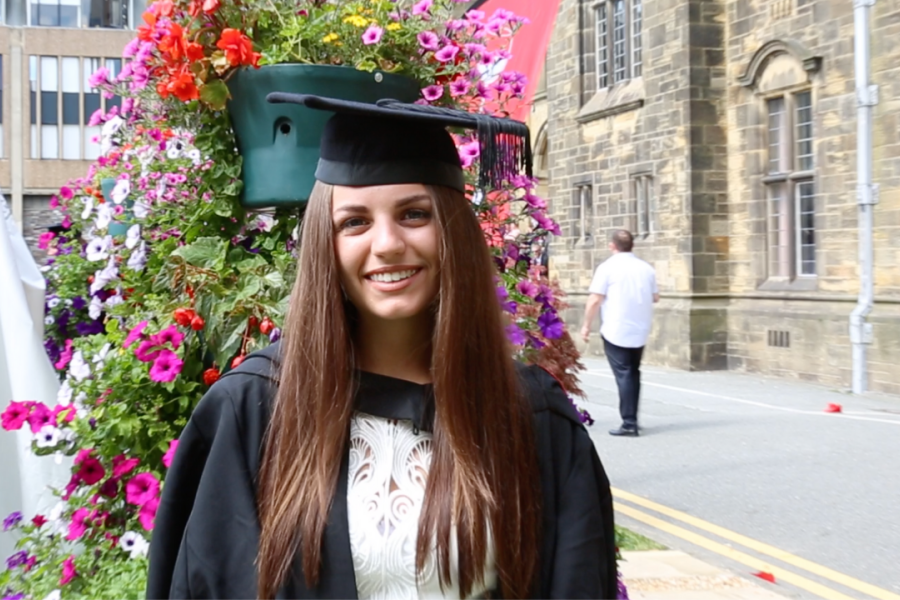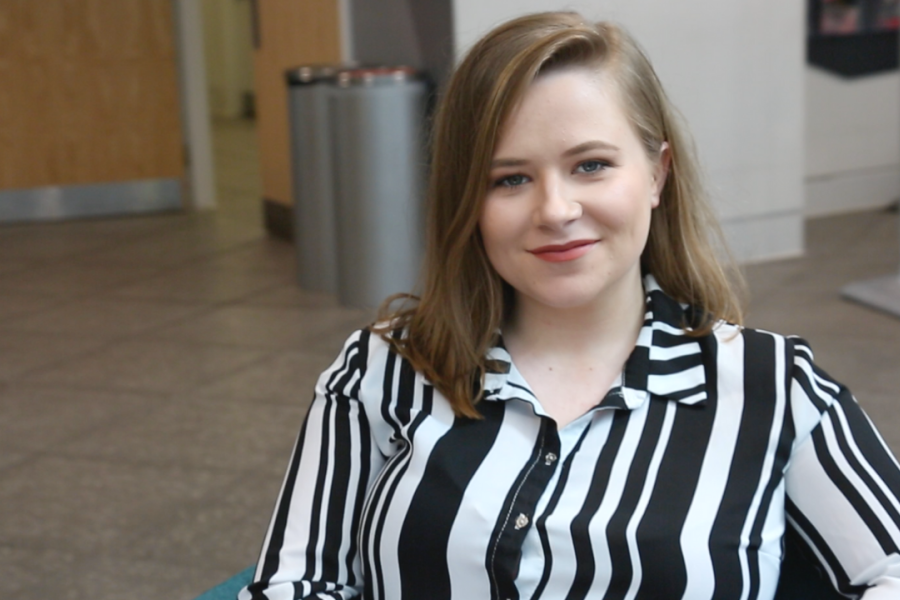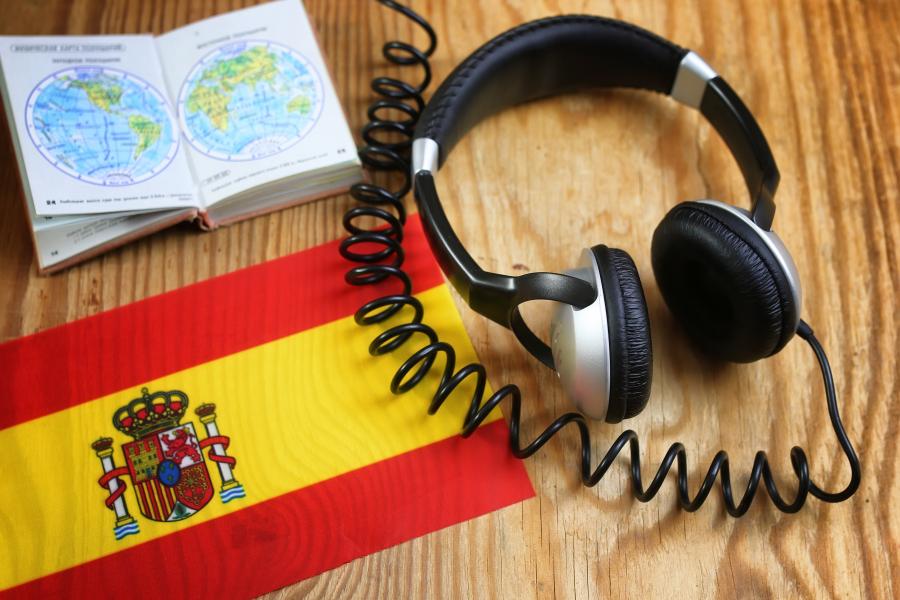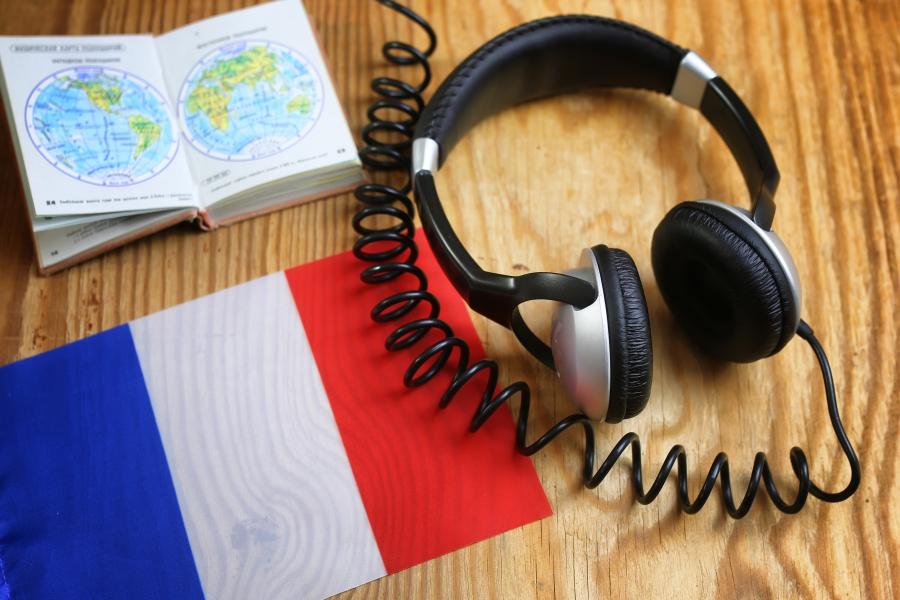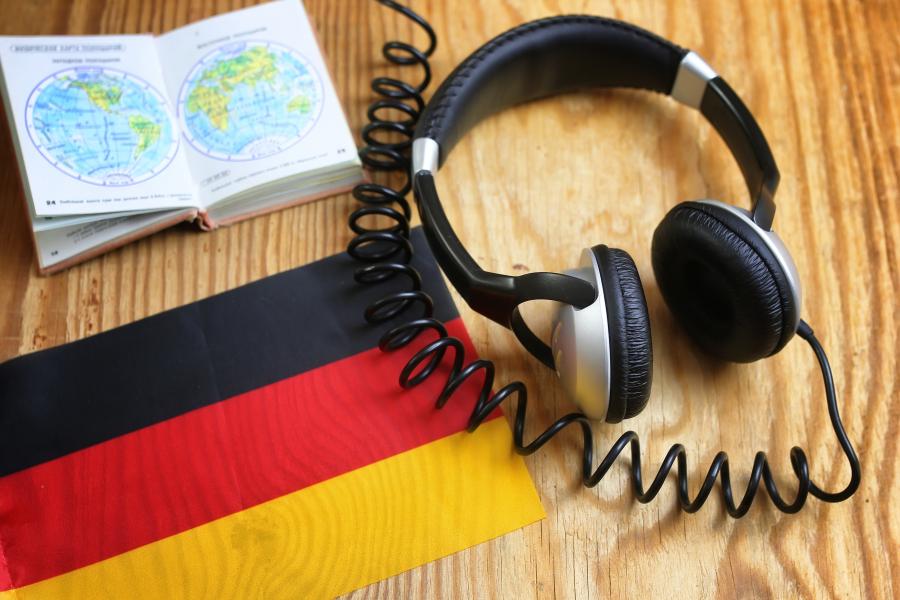About This Course
The Modern Languages BA at Bangor provides you with the unique opportunity to study up to three languages in a friendly, supportive and vibrant environment in one of the most beautiful parts of the United Kingdom. We offer French, Spanish, German, Italian and Chinese at degree level, as well as modules in Galician. Our courses are designed to cater for those who have studied one or more languages at A Level as well as offering pathways for those beginning a language from scratch.
You can choose to specialise in one language or broaden your knowledge base by choosing two or three languages. You can carry on with a language you have been learning at school and add one or even two new ones to your skill set. Our courses are designed to equip you with excellent language and communication skills as well as enhancing your understanding of the cultures where they are spoken. Our staff are highly regarded researchers and you will be learning about language, culture and history from real experts.
A key aspect of the degree is the Year Abroad (year 3) where you will spend time in one or more countries developing your language skills and gaining valuable experience which will set you up for final year and, ultimately your future career. During the Year Abroad you can choose to study at one of our many partner universities or enter the world of work as an English Language Assistant or on a work placement. The skills acquired during a language degree are highly sought after by employers. As well as your language abilities, you will develop excellent communication, analytical and presentation skills in addition to a high level of cultural awareness and time management skills.
Why choose Bangor University for this course?
- Chinese, French, German, Italian and Spanish are taught from Year 1
- Flexible degree structure to tailor the course to your interests.
- The fantastic opportunity to broaden your horizons during a year abroad.
Additional Course Options
This course is available with a Placement Year option where you will study for 1 additional year. The Placement Year is undertaken at the end of the second year and students are away for the whole of the academic year.
The Placement Year provides you with a fantastic opportunity to broaden your horizons and develop valuable skills and contacts through working with a self-sourced organisation relevant to your degree subject. The minimum period in placement (at one or more locations) is seven calendar months; more usually you would spend 10-12 months with a placement provider. You would normally start sometime in the period June to September of your second year and finish between June and September the following year. Placements can be UK-based or overseas and you will work with staff to plan and finalise the placement arrangements.
You will be expected to find and arrange a suitable placement to complement your degree and will be fully supported throughout by a dedicated member of staff at your academic School and the University’s Careers and Employability Services.
You will have the opportunity to fully consider this option when you have started your course at Bangor and can make an application for a transfer onto this pathway at the appropriate time. Read more about the work experience opportunities that may be available to you or, if you have any questions, please get in touch.
This course is available with an International Experience Year option where you will study or work abroad for 1 additional year. You will have ‘with International Experience’ added to your degree title on graduating.
Studying abroad is a great opportunity to see a different way of life, learn about new cultures and broaden your horizons. With international experience of this kind, you’ll really improve your career prospects. There are a wide variety of destinations and partner universities to choose from. If you plan to study in a country where English is not spoken natively, there may be language courses available for you at Bangor and in your host university to improve your language skills.
You will have the opportunity to fully consider this option at any time during your degree at Bangor and make your application. If you have any questions in the meantime, please get in touch.
Read more about the International Experience Year programme and see the studying or working abroad options on the Student Exchanges section of our website.
Course Content
The BA Modern Languages is designed to enable you to develop your language skills year on year, supported by a team of enthusiastic and experienced staff. Whether you are continuing a language which you have already studied at school or beginning a new one from scratch, you will be taught in small groups using interactive teaching methods. Language classes are usually taught in the language itself and are designed to develop your understanding of grammar and your reading, writing, speaking and listening skills. In addition, the materials used in class are carefully chosen to help you to better understand the cultures of the countries where the language is spoken so that you are able to place the languages learnt in their cultural context.
The BA Modern Languages offers a great degree of flexibility. Depending on the subject mix you choose, you can decide whether to focus more specifically on language learning (for example, by choosing to study three languages) or whether to specialise and learn more about a specific language and its culture (for example, by choosing to focus on one or two languages). If you decide to specialise, you will be able to choose from a range of cultural modules which will enable you to explore different aspects such as film, literature, history and politics. Assessment is designed to reflect real life language use and challenge you to achieve your best level. As well as traditional approaches such as translation and essay writing, you will be asked to deliver presentations, work on blogs and develop your critical and creative skills. Each student will also research and write a dissertation towards the end of their degree which is an excellent opportunity to showcase the skills and knowledge you have acquired working on a topic of your own choice.
Modules for the current academic year
Module listings are for guide purposes only and are subject to change. Find out what our students are currently studying on the Modern Languages (Chinese, French, German, Italian, Spanish) BA (Hons) Modules page.
Course content is for guidance purposes only and may be subject to change.
Facilities
Modern Languages facilities
- Language Centre where you can work on your language skills.
- Language-specific resource rooms where you can access materials to boost your language skills and cultural knowledge.
- Modern Languages DVD library featuring several hundred foreign language films that you can borrow for free.
- Dedicated study spaces.
- Film library.
- Dedicated Year Abroad support.
General University Facilities
Library and Archive Services
Our four libraries provide a range of attractive study environments including collaborative work areas, meeting rooms and silent study spaces.
We have an extensive collection of books and journals and many of the journals are available online in full-text format.
We house one of the largest university-based archives not only in Wales, but also the UK. Allied to the Archives is the Special Collections of rare printed books.
Learning Resources
There is a range of learning resources available, supported by experienced staff, to help you in your studies.
The University’s IT Services provides computing, media and reprographics facilities and services including:
- Over 1,150 computers for students, with some PC rooms open 24 hours a day
- Blackboard, a commercial Virtual Learning Environment, that makes learning materials available on-line.
Course Costs
General University Costs
Home (UK) students
- The cost of a full-time undergraduate course is £9,000 per year (2021/22 entry and 2022/23 entry).
- The fee for all placement, international, and sandwich years is £1,350 (2021/22 and 2022/23).
- More information on fees and finance for Home (UK) students.
International (including EU) students
Additional Costs
There are also some common additional costs that are likely to arise for students on all courses, for example:
- If you choose to study abroad or take the International Experience Year as part of your course.
- If you attend your Graduation Ceremony, there will be a cost for gown hire (£25-£75) and cost for additional guest tickets (c.£12 each).
Course-specific additional costs
Depending on the course you are studying, there may be additional course-specific costs that you will be required to meet. These fall into three categories:
- Mandatory Costs: these are related to a particular core or compulsory module that you’ll be required to complete to achieve your qualification e.g. compulsory field trips, uniforms for students on placement, DBS Check.
- Necessarily Incurred Costs: these may not be experienced by all students, and will vary depending on the course e.g. professional body membership, travel to placements, specialist software, personal safety equipment.
- Optional Costs: these depend on your choice of modules or activity and they are shown to give you an indication of the optional costs that may arise to make sure your choice is as informed as possible. These can include graduation events for your course, optional field trips, Welcome Week trips.
Entry Requirements
For all Modern Languages courses: Relevant modern language preferred. Our courses are designed to cater for those who have studied one or more languages as well as offering pathways for those beginning a language from scratch - there is no modern language language requirement for the beginner's language route.
Offers are tariff based, 96 - 128 tariff points from a Level 3 qualification* e.g.:
- A Levels: Relevant modern language preferred (no language required for beginner's language route). General Studies and Key Skills not normally accepted.
- BTEC National Extended Diploma: MMM - DDM
- Cambridge Technical Extended Diploma: MMM- DDM
- City & Guilds Advanced Technical Extended Diploma (1080): considered on a case-by-case basis
- International Baccalaureate Diploma: including grade H5 in a relevant modern language (no language required for beginner's language route)
- Access: pass required
- Welsh Baccalaureate: We will accept this qualification in conjunction with other level 3 qualifications
- T Levels: T Levels in a relevant subject considered on a case-by-case basis
- Extended Project Qualification: Points can include a relevant Extended Project (EPQ) but must include a minimum 2 full A-levels, or equivalent.
We are happy to accept combinations of the qualifications listed above, as well as alternative Level 3 qualifications such as City & Guilds, Access and Cambridge Technical Diplomas.
We also welcome applications from mature learners.
International Candidates: International Candidates: school leaving qualifications that are equivalent to A levels/Level 3 and/or college diplomas are accepted from countries worldwide (subject to minimum English Language requirements). More information can be found on our International pages.
*For a full list of accepted Level 3 qualifications, go to www.ucas.com.
General University Requirements
To study for a degree, you’ll be asked for a minimum of UCAS Tariff points. For a fuller explanation of the UCAS Tariff Points, please see www.ucas.com.
We accept students with a wide range of qualifications and backgrounds and consider each application individually.
All students need to have good basic skills and the University also values IT and communication skills.
As part of the University’s policy, we consider applications from prospective disabled students on the same grounds as all other students.
We also consider applications from mature students who can demonstrate the motivation and commitment to study a university programme. Each year we enrol a significant number of mature students. For more information about studying as a mature student, see our Studying at Bangor section of the website.
EU and International Students' Entry Requirements
For detailed guidance on the entry requirements for EU and International Students, including the minimum English Language entry requirement, please visit the Entry Requirements by Country pages. International applicants can also visit the International Education Centre section of our website for further details.
Bangor University offers International Incorporated Bachelor Degrees for International students whose High School qualification is not equivalent to the UK school leaving qualification. The first year (or Year 0) is studied at Bangor University International College, an embedded College on our University campus and delivered by Oxford International Education Group.
Careers
Our BA Modern Languages equips our students with a broad range of subject-specific and transferrable skills which are highly valued in the workplace. This is reflected in the impressive variety of career paths they end up following. Some are very much focussed on language itself. Many go on to train as language teachers at either primary or secondary school level. Others take advantage of access to specialist training at Bangor to become teachers of English abroad. Some even go on to do postgraduate study with a view to entering the university sector.
Another popular career is that of translator, either freelance or embedded in a company, with opportunities both in the UK and further afield. But languages are also valued in a huge variety of careers. We see students go on to work in professions where languages are key to giving them a competitive edge. Examples include careers as diverse as airline pilot, sports commentator or university international officer. There are also those who have developed their entrepreneurial side to use their languages in setting up their own successful businesses, for example, a bespoke copy writing agency or a multi-million-pound recycling company. Essentially, a degree in languages is the key to opening doors across the world of work, and indeed, across the world itself. A large proportion of our graduates end up working abroad and in high end professional jobs.
Opportunities at Bangor
The University’s Careers and Employability Service provides a wide range of resources to help you achieve your graduate ambitions.
The Bangor Employability Award (BEA)
The BEA is a comprehensive online course that you can work through at your own pace, taking you through all the steps you need to take to explore, prepare and apply for your dream career.
Internships
Bangor University runs a paid internship scheme within the university’s academic and service departments.
Student Volunteering
Volunteering widens your experience and improves your employability. Find out more about volunteering on the Students’ Union’s website.
Foundation Year
A 'with Foundation Year' option is available for this course. Apply for Modern Languages (with Foundation Year).
What is a Foundation Year course?
If you don’t have the required qualifications for the degree-level course or are looking to re-enter education after time away from study, then a Foundation Year Programme might be the right choice for you.
The Foundation Year is an excellent introduction to studying this subject at university and will provide you with the knowledge, skills and confidence required to go on to study this course at degree-level.
When you have successfully completed the Foundation Year, you can progress on to the first year of this degree-level course.

